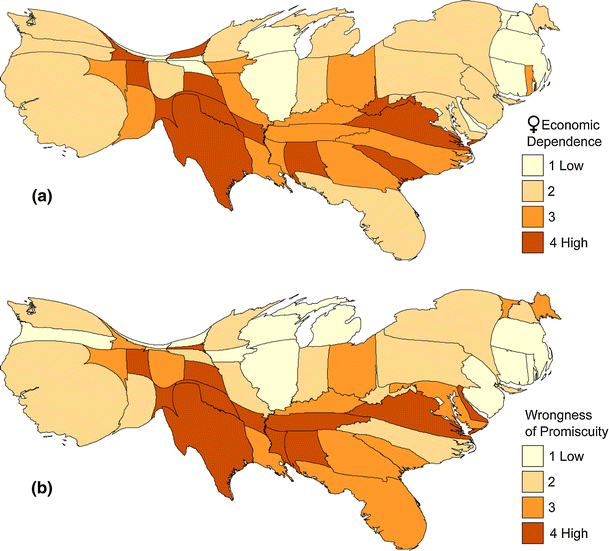And in western society, female promiscuity is frowned on more than the male kind. Even in different countries it has different perceptions. The British show "Coupling" was hilarious to both Americans and British people but when a US network made an American version, it was a huge flop, even though it was taken almost verbatim from the British. The reason is because American audiences thought promiscuous British women were funny, but not American ones.
Psychologists say they can close that promiscuity gap - women just need to make more money.
Psychology is overwhelmingly dominated by women so it always seems odd that they go out of their way to set women back, but a new paper speculates that if women are less economically dependent on men, they can be more promiscuous without getting a bad reputation.

Image link: debate.org
They used U.S. economic and census data and then surveyed over 5,000 people about their views on promiscuity and the extent to which they knew women who depend financially on men. They matched income data in U.S. states to attitudes toward promiscuity and found higher incomes had a more relaxed attitude.
They also found that people who know more economically-dependent women tend to be more opposed to promiscuity. They controlled for influences on sexual morality, like religion. They found that attitudes towards promiscuity in those wealthier states, like New York and California, were specifically related to female income rather than male income.

Cartograms of state mean scores for a perceived female economic dependence and b wrongness of promiscuity, showing quartile ranges, with state areas scaled to represent the number of participants (N) for each state. For state-level analyses, all tests were weighted by state N, so state areas represent each state’s relative influence in these analyses.
Lead researcher and Deputy Head of Psychology at Brunel University Dr. Michael Price says the findings have implications for how people in different cultures judge the sexual behavior of others. “In regions where women earn less, people may be more hostile towards practices such as open marriage, and more likely to think that promiscuous people deserve any hardships that befall them.”
Price explains the results in terms of evolutionary psychology. “When women and children depend more on men, it becomes more important for people to know who a child’s father is, and promiscuity makes this harder to know.”
Citation: Michael E. Price , Nicholas Pound, Isabel M. Scott, 'Female Economic Dependence and the Morality of Promiscuity', Archives of Sexual Behavior June 25 2014 DOI: 10.1007/s10508-014-0320-4





Comments